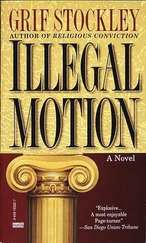With the billionaires came some unsavoury connections to the Russian mafia, which were more the concern of the new Serious and Organised Crime Agency than MI5. But the presence in the UK of so many characters of dubious origin with so much Russian money, a number of them openly hostile to the regime in Moscow, was bound to interest the Russian intelligence officers in London. And that, as Brian Ackers insisted, was in turn interesting to the Counter-Espionage Branch.
Liz felt a tap on her arm and Peggy pushed across a note. “Got to go” it read. She nodded, and Peggy slipped out as Brian Ackers asked for other reports. Liz’s mind began to wander. She wondered what was happening in Counter-Terrorism and how they were getting on without Charles. She was jolted back to the meeting by the sound of people beginning to stir in their chairs, sensing the meeting was coming to an end. But Ackers wasn’t finished yet. “If we could go back to Nysenko for a moment,” he said, and Liz thought she heard a small groan from Michael Fane.
“I have to say, the approach to Maples strikes me as very poorly executed. Almost amateurish, in fact,” Ackers mused, and it struck Liz that he was almost feeling let down by the incompetence of his old adversaries.
He looked over at Hadley. “Nysenko’s very young, isn’t he?”
Hadley nodded. “In his twenties.”
“So he’s green,” said Ackers. “Too green. I’m puzzled. They needed an experienced officer for that kind of operation. Someone who’d have taken more time to sound out Maples before making his approach.”
Michael Fane spoke up. “Maybe Nysenko was the best they’ve got in London.”
“I don’t believe that for a minute. We know they’ve got some much more senior officers here.” Ackers didn’t look at Fane, and Liz sensed he was thinking out loud. “Unless,” he said, his eyes slowly widening, “the whole thing was intended as a distraction. From something more important.”
No one said a word. Brian Ackers’ pale eyes swept across his audience, as if daring anyone to challenge his reasoning. “That certainly could be the answer,” he declared firmly, with an unmistakable note of elation. “Yes. There could well be something else going on that we don’t know anything about. That’s the worrying part.”
But if he were worried, thought Liz, he didn’t sound it. Brian Ackers was scenting the enemy and that made him a happy man once more.
Geoffrey Fane was not a modest man, but neither was he ostentatious. He moved quietly and unobtrusively among a wide group of acquaintances in various overlapping circles at the upper end of London society. He knew the inside of most of the embassy dining rooms, and all of the St. James’s clubs, but Rupert’s Club, where he had been invited to meet Sir Victor Adler, was virgin territory.
As he lifted the knocker on the front door of the small Georgian town house in a quiet street on the west side of Berkeley Square, he allowed himself to wonder for a moment what he would find inside.
Adler was a man he had known for a very long time—socially they had met at the occasional dinner party and embassy function—but their contact was mainly professional. Adler had for years supplied MI6 with what was perhaps little more than gossip which he had picked up on his regular visits to the Soviet Union and now to Russia. When Fane, who kept a close eye on these things, knew that Adler had returned from a visit, he would invite him to MI6’s headquarters at Vauxhall Cross for a chat. The contact was low-key, very civilised and understood by everyone, including the Russians. Fane was curious to know what had caused Adler to break the pattern and initiate a meeting.
The front door was opened silently by a short, frog-eyed man in a tailcoat. To Fane’s enquiry for Sir Victor, he inclined his head, and without speaking motioned towards an inner room where about a dozen men and a few women sat in groups in high-backed, well-padded armchairs. Conversation stopped for a moment as Fane walked in, and eyes were raised as quick assessments of the newcomer were made. Victor rose from his seat in a corner and indicated the chair opposite him.
As Fane sat down, he looked around. The room was highly decorated, over decorated in fact, almost vulgar to Fane’s ascetic eye. On the high ceiling were painted scenes of nymphs and swags of flowers, the walls were hung with gilt mirrors and every available inch was covered with assorted pictures in gold frames. The curtains were heavy brocade with tasselled tie-backs and the side tables were fruitwood. It was quite obvious from the general air of opulence that to become a member of Rupert’s Club a man could be tall or short, fat or thin, Christian or (as with Adler) Jew, but the one inflexible requirement was that he be rich.
Which Adler indisputably was. He had social cachet from birth, since his mother came from one of the earliest Sephardic families in Britain. Any residual doubts about their Englishness had long been assuaged by a series of canny marital alliances made over the course of several centuries—including, a century before, marriage to a Curzon.
But it was from Adler’s father’s side that Victor had inherited the cash that supported the cachet. The Adler clan descended from a single banking patriarch who, like the original Warburg and the early Rothschilds, had come to London from Germany in the 1840s—as if sensing a hundred years ahead of time that it was better for a Jew not to stick around in Frankfurt.
Sir Victor Adler himself had never shown the slightest interest in joining the family bank, but then, thought Fane, why should he have? He owned enough of it to finance his other, far greater interest. From adolescence, curiously perhaps considering his own Germanic antecedents, Victor was deeply, passionately interested in Russia. Its art, literature, music, food and particularly its politics.
Adler was one of a small elite band of international figures who wielded “influence,” that strange, difficult-to-define commodity, which if examined too closely, seemed to dissolve into thin air like a djinn. But it was real to those who believed in it, and there were many such believers who sought Adler’s advice—companies doing business with Russia, banks investing there and, of course, politicians. Fane was not one of the believers, but he knew that Adler talked to people he and his colleagues were interested in. And that was enough for him.
Now he looked at his host and waited for him to speak. A heavy cut-glass tumbler of whisky materialised on the table by Fane’s arm. Victor pushed across the jug of water, then leant back in his chair, crossing his well-padded legs at the ankles. “Let me tell you why I wanted to see you. As you will know, I returned from a short visit to Russia a few days ago. I was there for a week, seeing mainly old acquaintances. Some of it was social, some political, some business; most of it all three.” He smiled briefly. “Then the day before I left I had a message at my hotel from someone I have known for years. He said he had something of the utmost importance to tell me. I was curious, so we met in the morning before I left for the airport.” Victor paused and leant forward almost imperceptibly in his chair. He didn’t whisper but spoke in a low voice that Fane had to struggle to hear. “I am sure you know the name Leonid Tarkov?”
Fane nodded. “One of the oil ministers.”
“That’s right,” said Adler, and chuckled. “That’s part of his problem—that he is still a minister. Do you remember when the Russians nationalised Yukos Oil?”
“Of course.” How could he forget? It was a notorious act of expropriation which seemed to reverse the trend towards privatisation begun under Yeltsin, and warned that the Russian state could still bare its autocratic Communist teeth whenever it wished.
Читать дальше












